
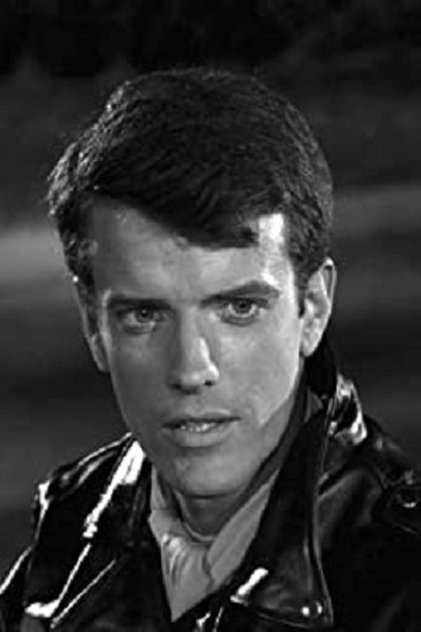
Lee Kinsolving
Born: August 30, 1938
Died: December 4, 1974
in Boston, Massachusetts, USA
Died: December 4, 1974
in Boston, Massachusetts, USA
Gifted, poetic actor who never fulfilled his potential. The son of an Episcopal minister and the eldest of four, Kinsolving began acting after his first year of college. A Method actor, Kinsolving studied under Mary Welch of the famed Actors Studio in New York.
After a short turn on Broadway, he was signed by agent Richard Clayton, who had brought both James Dean and Tab Hunter to stardom. Soon, Kinsolving was appearing in various East Coast television shows, including the live presentation of Eugene O'Neill's "Ah, Wilderness!" with Helen Hayes. In 1959, Kinsolving headed for Hollywood, rooming with actor James Franciscus. After several more TV appearances in such shows as Have Gun - Will Travel (1957), Kinsolving landed his first movie role, with Alan Ladd, in 1960's All the Young Men (1960). That same year, he gave a moving performance as "Sammy Golden" in the film adaptation of William Inge's The Dark at the Top of the Stairs (1960). Kinsolving won raves and a Golden Globe nomination for Best Supporting Actor. Regrettably, Kinsolving made only one more film, The Explosive Generation (1961), before completing his brief career in TV guest roles. Nonetheless, Kinsolving brought a striking combination of sexuality, pathos and vulnerability to his work (including an outstanding performance in Route 66 (1960)). Kinsolving retired from acting in 1966, due to his personal frustrations with the business. For two years, he owned a hip restaurant-bar, "Toad Hall", in Manhattan.
After brief romances with Tuesday Weld and Candice Bergen, Kinsolving sold his bar and married in late 1969. Moving to Florida, he managed two art galleries. After divorcing his wife in 1972, Kinsolving, an avid seaman, spent the remainder of his life sailing exotic locales in his private schooner.
Sadly, Kinsolving developed a strange respiratory illness which, without warning, rendered him unconscious. On the afternoon of December 4, 1974, Kinsolving collapsed and died in his Palm Beach apartment. He was 36.
After a short turn on Broadway, he was signed by agent Richard Clayton, who had brought both James Dean and Tab Hunter to stardom. Soon, Kinsolving was appearing in various East Coast television shows, including the live presentation of Eugene O'Neill's "Ah, Wilderness!" with Helen Hayes. In 1959, Kinsolving headed for Hollywood, rooming with actor James Franciscus. After several more TV appearances in such shows as Have Gun - Will Travel (1957), Kinsolving landed his first movie role, with Alan Ladd, in 1960's All the Young Men (1960). That same year, he gave a moving performance as "Sammy Golden" in the film adaptation of William Inge's The Dark at the Top of the Stairs (1960). Kinsolving won raves and a Golden Globe nomination for Best Supporting Actor. Regrettably, Kinsolving made only one more film, The Explosive Generation (1961), before completing his brief career in TV guest roles. Nonetheless, Kinsolving brought a striking combination of sexuality, pathos and vulnerability to his work (including an outstanding performance in Route 66 (1960)). Kinsolving retired from acting in 1966, due to his personal frustrations with the business. For two years, he owned a hip restaurant-bar, "Toad Hall", in Manhattan.
After brief romances with Tuesday Weld and Candice Bergen, Kinsolving sold his bar and married in late 1969. Moving to Florida, he managed two art galleries. After divorcing his wife in 1972, Kinsolving, an avid seaman, spent the remainder of his life sailing exotic locales in his private schooner.
Sadly, Kinsolving developed a strange respiratory illness which, without warning, rendered him unconscious. On the afternoon of December 4, 1974, Kinsolving collapsed and died in his Palm Beach apartment. He was 36.
Movies for Lee Kinsolving...
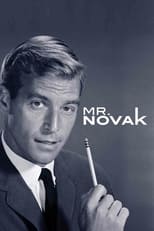
Title: Mr. Novak
Character: Paul Christopher
Released: September 24, 1963
Type: TV
Mr. Novak is an American dramatic series starring James Franciscus in the title role, which aired on NBC for two seasons, from 1963 to 1965.

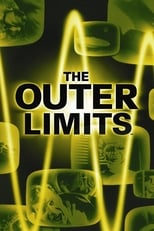
Title: The Outer Limits
Character: Ethan Wechsler
Released: September 16, 1963
Type: TV
The Outer Limits is an anthology tv series of self-contained sci-fi-horror stories, sometimes with a plot twist at the end.

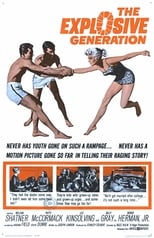
Title: The Explosive Generation
Character: Dan Carlyle
Released: October 19, 1961
Type: Movie
Peter Gifford is a likable, dedicated schoolteacher that teaches a senior life skills class. When student Janet Sommers brings up the topic of sex and dating, he asks students to write questions on the topic, and will cover them in the next class. The parents get wind of what Gifford is about to do, notify the principal, and he warns Peter not to read the questions in class. Gifford decides to go against this and is suspended. The whole student body protests, and the administration gets worried on what to do.

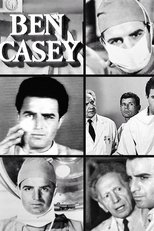
Title: Ben Casey
Released: October 2, 1961
Type: TV
Ben Casey is an American medical drama series which ran on ABC from 1961 to 1966. The show was known for its opening titles, which consisted of a hand drawing the symbols "♂, ♀, ✳, †, ∞" on a chalkboard, as cast member Sam Jaffe intoned, "Man, woman, birth, death, infinity." Neurosurgeon Joseph Ransohoff was a medical consultant for the show and may have influenced the personality of the title character.

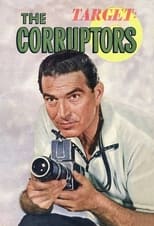
Title: Target: The Corruptors!
Released: September 29, 1961
Type: TV
Target: The Corruptors! is an American crime drama series starring Stephen McNally which aired on ABC from September 29, 1961 to June 8, 1962. The series was produced by Dick Powell's Four Star Television.

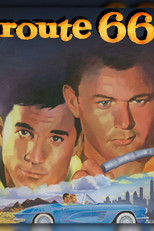
Title: Route 66
Released: October 7, 1960
Type: TV
Route 66 is an American TV series in which two young men traveled across America in a Chevrolet Corvette sports car. The show ran weekly on Fridays on CBS from October 7, 1960 to March 20, 1964. It starred Martin Milner as Tod Stiles and, for the first two and a half seasons, George Maharis as Buz Murdock. Maharis was ill for much of the third season, during which time Tod was shown traveling on his own. Tod met Lincoln Case, played by Glenn Corbett, late in the third season, and traveled with him until the end of the fourth and final season.
Among the series more notable aspects were the featured Corvette convertible, and the program's instrumental theme song, which became a major pop hit.

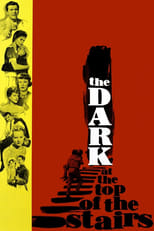
Title: The Dark at the Top of the Stairs
Character: Sammy Golden
Released: September 28, 1960
Type: Movie
In Oklahoma in the 1920s, Rubin Flood loses his job as a traveling salesman when the company goes bankrupt. This adds to his worries at home. His wife Cora is frigid because of trying to make ends meet. His teenage daughter Reenie is afraid of going out on dates, but eventually makes friends with a troubled Jewish boy Sammy Golden, and his son is a mama's boy. He finally storms out of the house when Cora falsely accuses him of having an affair with Mavis Pruitt.

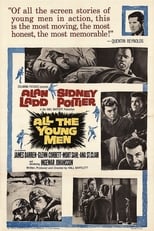
Title: All the Young Men
Character: Pvt. Dean
Released: August 26, 1960
Type: Movie
During the Korean War, the lieutenant in charge of a Marine rifle platoon is killed in battle. Before he dies, he places the platoon's sergeant, who's black, in charge. The sergeant figures on having trouble with two men in his platoon: a private who has much more combat experience than he does, and a racist Southerner who doesn't like blacks in the first place and has no intention of taking orders from one.

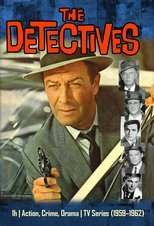
Title: The Detectives
Released: October 16, 1959
Type: TV
The Detectives is an American crime drama series which ran on ABC during its first two seasons, and on NBC during its third and final season. The series, starring motion picture star Robert Taylor, was produced by Four Star Television.

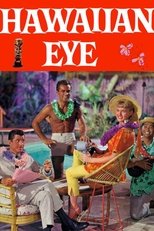
Title: Hawaiian Eye
Released: October 7, 1959
Type: TV
Private Eyes Tom Lopaka and Tracy Steele are based out of Hawaiian Village Resort where they work both hotel security and are hired by others to look into various matters. They're helped by their trusty right-hand man Kazuo Kim who runs a taxi company and is always eager to help them.

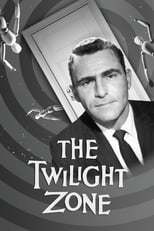
Title: The Twilight Zone
Character: Scott
Released: October 2, 1959
Type: TV
A series of unrelated stories containing drama, psychological thriller, fantasy, science fiction, suspense, and/or horror, often concluding with a macabre or unexpected twist.

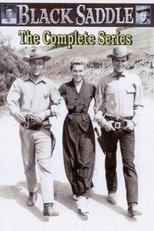
Title: Black Saddle
Character: Dick Banks
Released: January 10, 1959
Type: TV
Black Saddle is an American Western television series starring Peter Breck that aired 44 episodes on ABC from January 10, 1959 to May 6, 1960. The half-hour program was produced by Dick Powell's Four Star Television, and the original pilot was an episode of CBS's Dick Powell's Zane Grey Theater, with Chris Alcaide portraying the principal character, Clay Culhane.
For syndicated reruns, Black Saddle was combined with three other Western series from the same company, Law of the Plainsman starring Michael Ansara, Johnny Ringo starring Don Durant and Mark Goddard, and the critically acclaimed creation of Sam Peckinpah, The Westerner with Brian Keith, under the umbrella title, The Westerners, with new hosting sequences by Keenan Wynn.


Title: The Rifleman
Character: Tim Elder
Released: September 30, 1958
Type: TV
The Rifleman is an American Western television program starring Chuck Connors as rancher Lucas McCain and Johnny Crawford as his son, Mark McCain. It was set in the 1880s in the town of North Fork, New Mexico Territory. The show was filmed in black-and-white, half-hour episodes. "The Rifleman" aired on ABC from September 30, 1958 to April 8, 1963 as a production of Four Star Television. It was one of the first prime time series to have a widowed parent raise a child.

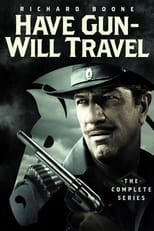
Title: Have Gun, Will Travel
Released: September 14, 1957
Type: TV
Have Gun – Will Travel is an American Western television series that aired on CBS from 1957 through 1963. It was rated number three or number four in the Nielsen ratings every year of its first four seasons. It was one of the few television shows to spawn a successful radio version. The radio series debuted November 23, 1958.
The television show is presently shown on the Encore-Western channel.
Have Gun – Will Travel was created by Sam Rolfe and Herb Meadow and produced by Frank Pierson, Don Ingalls, Robert Sparks, and Julian Claman. There were 225 episodes of the TV series, 24 written by Gene Roddenberry. Other contributors included Bruce Geller, Harry Julian Fink, Don Brinkley and Irving Wallace. Andrew McLaglen directed 101 episodes and 19 were directed by series star Richard Boone.


Title: Gunsmoke
Character: Jess Bartell / Jay Bartell
Released: September 10, 1955
Type: TV
Gunsmoke is an American radio and television Western drama series created by director Norman MacDonnell and writer John Meston. The stories take place in and around Dodge City, Kansas, during the settlement of the American West. The central character is lawman Marshal Matt Dillon, played by William Conrad on radio and James Arness on television.

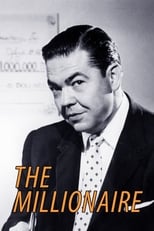
Title: The Millionaire
Character: Jerry Scott
Released: January 19, 1955
Type: TV
An anthology series that explored the ways sudden and unexpected wealth changed life for better or for worse. It told the stories of people who were given one million dollars from a benefactor who insisted they never know him, with one exception.

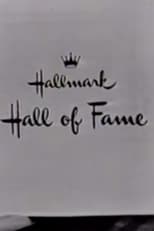
Title: Hallmark Hall of Fame
Character: Richard Miller
Released: December 24, 1951
Type: TV
Hallmark Hall of Fame is an anthology program on American television, sponsored by Hallmark Cards, a Kansas City based greeting card company. The longest-running primetime series in the history of television, it has a historically long run, beginning during 1951 and continuing into 2013. From 1954 onward, all of its productions have been shown in color, although color television video productions were extremely rare in 1954. Many television movies have been shown on the program since its debut, though the program began with live telecasts of dramas and then changed to videotaped productions before finally changing to filmed ones.
The series has received eighty Emmy Awards, twenty-four Christopher Awards, eleven Peabody Awards, nine Golden Globes, and four Humanitas Prizes. Once a common practice in American television, it is the last remaining television program such that the title includes the name of the sponsor. Unlike other long-running TV series still on the air, it differs in that it broadcasts only occasionally and not on a weekly broadcast programming schedule.
